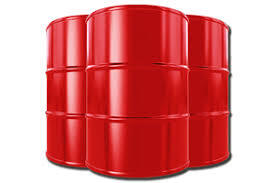The oil and gas industry is a cornerstone of global energy supply, making oil storage facilities critical assets. However, the high value of oil, often referred to as “black gold,” makes these facilities attractive targets for theft, sabotage, and accidents. Implementing robust security measures is essential to ensure the safe storage of oil, protect against environmental risks, and maintain operational efficiency. This article outlines the top security measures to safeguard oil storage facilities.
Understanding the Importance of Oil Storage Security
Oil storage facilities face a unique combination of risks, including:
-
Theft and Pilferage: The high monetary value of stored oil makes it a target for theft.
-
Sabotage and Terrorism: Facilities are vulnerable to intentional damage.
-
Operational Hazards: Leaks, spills, or fires can lead to catastrophic consequences.
Securing oil storage facilities not only protects assets but also ensures compliance with international safety and environmental standards.
Designing Secure Infrastructure
The foundation of oil storage security lies in its infrastructure. Facilities should be designed with safety and security in mind, including:
-
Perimeter Fencing: High-quality fences with anti-climb features prevent unauthorized access.
-
Controlled Access Points: Gates and barriers equipped with biometric or keycard systems regulate entry.
-
Security Lighting: Adequate illumination deters intruders and aids surveillance.
These measures form the first line of defense against potential threats.
Implementing Advanced Surveillance Systems
Modern technology plays a pivotal role in monitoring oil storage facilities. Advanced surveillance systems include:
-
CCTV Cameras: High-resolution cameras with night vision capabilities monitor key areas.
-
Drones: Aerial surveillance provides a broader view of the facility.
-
Motion Sensors: Detecting unusual activity in real time.
Integrating these systems with a central monitoring hub ensures quick response to security breaches.
Deploying Fire and Explosion Prevention Measures
The volatile nature of oil makes fire and explosion prevention a top priority. Key measures include:
-
Fire Suppression Systems: Installing automatic sprinklers, foam systems, and dry chemical suppressants.
-
Gas Detection Sensors: Identifying hazardous gas leaks early.
-
Regular Maintenance: Ensuring that all equipment, including tanks and pipelines, is in optimal condition.
These systems minimize the risk of accidents and their potentially devastating impact.
Employing Physical Security Personnel
While technology is indispensable, trained security personnel are equally important. Their responsibilities include:
-
Conducting regular patrols of the facility.
-
Monitoring access points and visitor logs.
-
Responding quickly to alarms or suspicious activity.
Investing in a skilled and well-equipped security team enhances overall safety.
Protecting Against Cyber Threats
In today’s digital era, oil storage facilities are also vulnerable to cyberattacks. Protecting sensitive operational data requires:
-
Firewalls and Antivirus Software: Preventing unauthorized access to networks.
-
Encryption: Securing data transmission between systems.
-
Employee Training: Educating staff about phishing and other cyber threats.
A robust cybersecurity framework complements physical security measures to safeguard operations.
Ensuring Environmental Compliance
Environmental regulations play a significant role in oil storage security. Compliance measures include:
-
Spill Containment Systems: Installing secondary containment to prevent environmental contamination.
-
Emergency Response Plans: Preparing for spills or leaks with trained personnel and equipment.
-
Regular Audits: Ensuring adherence to local and international environmental laws.
These practices protect both the environment and the facility’s reputation.
Adopting Smart Technologies
The integration of smart technologies enhances security and operational efficiency. Examples include:
-
IoT Sensors: Monitoring tank levels, pressure, and temperature in real time.
-
AI-Powered Analytics: Detecting patterns and anomalies to predict potential risks.
-
Automated Alerts: Sending instant notifications to personnel during emergencies.
These innovations reduce human error and provide actionable insights for better decision-making.
Conducting Regular Training and Drills
Security measures are only as effective as the people implementing them. Regular training and drills ensure that personnel are prepared to handle emergencies. Key areas of focus include:
-
Evacuation Protocols: Ensuring swift and safe evacuation during incidents.
-
Firefighting Techniques: Training staff to use extinguishers and other equipment.
-
Incident Reporting: Encouraging accurate and timely reporting of security breaches.
Ongoing education fosters a culture of safety and preparedness.
Collaborating with Stakeholders
Effective oil storage security requires collaboration with multiple stakeholders, including:
-
Local Authorities: Coordinating with police and fire departments.
-
Industry Peers: Sharing best practices and lessons learned.
-
Regulators: Staying updated on evolving security and environmental standards.
Building strong relationships enhances security and operational resilience.
Challenges in Implementing Security Measures
Despite the importance of security, facilities often face challenges such as:
-
High Costs: Advanced systems and training programs require significant investment.
-
Rapid Technological Changes: Keeping up with evolving threats and solutions.
-
Complex Regulatory Frameworks: Navigating diverse local and international laws.
Addressing these challenges requires a proactive approach and commitment to continuous improvement.
Conclusion
Securing oil storage facilities is a multifaceted process that combines robust infrastructure, advanced technologies, trained personnel, and strong stakeholder collaboration. By implementing these top security measures, businesses can protect their valuable assets, ensure environmental compliance, and maintain operational efficiency. In a high-stakes industry like oil and gas, investing in security is not just an option—it’s a necessity.
For more expert insights into safety and security strategies, visit Valor International Holding.
